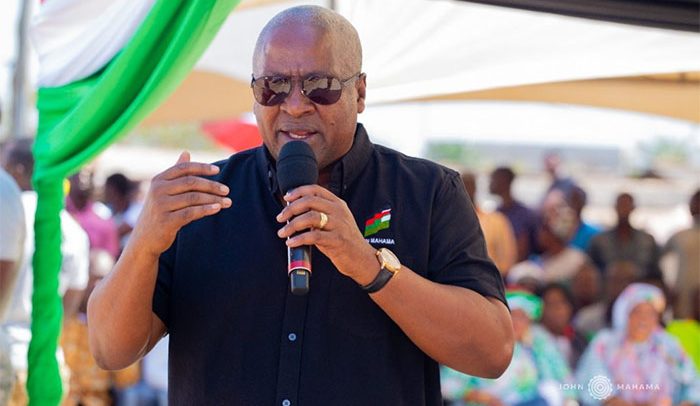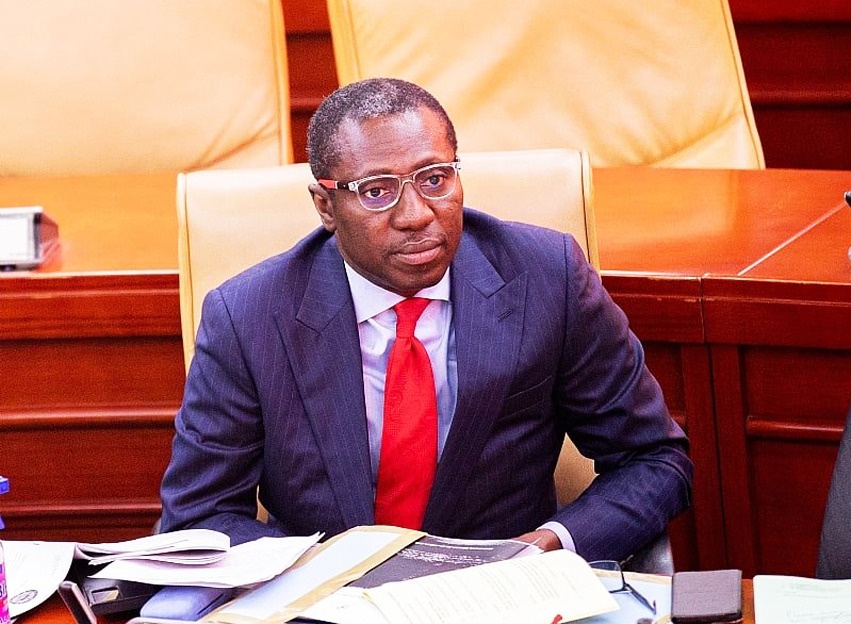
This is the second of three (3) series of articles to be published in three (3) insertions. The first article titled: ‘‘The insignificance of tribalism towards election 2024 – A survey report” was published on 18th November 2024 on page 17 of the Business & Financial Times.
It is presented as an analysis of a survey conducted by the author. Its essential enquiry is to test voters desire of who will become the next President of Ghana in the 7th December 2024 national election.
The argument as to whether or not the Free Senior High School (Free SHS) education may be cancelled by a future government will be explored in this paper. Graciously, Article 25 (1) of the 1992 Constitution of Ghana specifies that “All persons shall have the right to equal educational opportunities and facilities and with a view to achieving the full realisation of that right –
- basic education shall be free, compulsory and available to all;
- secondary education in its different forms, including technical and vocational education, shall be made generally available and accessible to all by every appropriate means, and in particular, by the progressive introduction of free education;
- higher education shall be made equally accessible to all, on the basis of capacity, by every appropriate means, and in particular, by progressive introduction of free education;
- functional literacy shall be encouraged or intensified as far as possible;
- the development of a system of schools with adequate facilities at all levels shall be actively pursued.
(2) Every person shall have the right, at his own expenses, to establish and maintain a private school or schools at all levels and of such categories and in accordance with such conditions as may be provided by law.
Article 25 as stipulated detaches Ghana’s education from political overtures and situates it in the context of national development planning contrary to how politics has taken centre stage in the sector remains a gigantic mischief perpetrated on Ghanaians. It is not in doubt that the true situation is getting clearer by the day to discerning minds.
The survey adopted a quantitative methodology approach by administering eight (8) closed ended questions via WhatsApp to individuals. The response of two hundred and five (205) participants was collected within twenty-four (24) of the broadcasted questionnaires on 12th November, 2024.
In the foregoing paragraphs, I will present the survey findings in tables and analysis.
Gender Distribution
| Gender | No. |
| Male | 126 |
| Female | 79 |
| Total | 205 |
Source: Author’s fieldwork, 2024
Out of the two hundred and five (205) respondents, one hundred and twenty-six (126) were male and seventy-nine (79) were female gender. The difference in the gender ratio is not immediately known but can be akin to the fact that in Ghana the male gender is more active in party politics than the female gender though female voters are more than male voters per records of national elections.
More work must be done by the political parties to get more women to actively participate in politics not just as voters but by occupying political positions and doing more political advocacy; all encompassing. When more women are actively involved, their children (both male and female) who have attained voting age and their men participation ratio will increase. Perhaps in schools, clubs and societies, women participation in elections must be consciously heightened as stepping stones to national politics.
Age Distribution
| Years | No. |
| 20 – 25 | 16 |
| 26 – 30 | 36 |
| 31 – 35 | 36 |
| 36 – 40 | 69 |
| 40 – 50 | 28 |
| Above 50 | 20 |
| Total | 205 |
Source: Author’s fieldwork, 2024
From the table above, the youngest respondent to the survey is between the ages of 20 and 25 years. The limited age of respondents is above the minimum age of universal adult suffrage which is eighteen (18) years. It therefore enforces the point that respondents to this survey are matured and very well aware of what they were participating in whereupon their responses were intentional.
Significate of the age distribution are those from age 31 years to above 50 years which adds up to one hundred and fifty-three (153) out of the two hundred and five (205) respondents. They form the majority on the age distribution table of the survey. Their age range suggests that their children are of secondary school going age for which reason their response to the subject matter stems from an experiential knowledge. This will manifest later in this paper when the key question is asked “can a future government cancel Free SHS?”.
Marital Distribution
| Married | No. |
| Yes | 109 |
| No | 96 |
| Total | 205 |
Source: Author’s fieldwork, 2024
One hundred and nine (109) of respondents are married and ninety-six (96) are not married. Irrespective of their marital status they are all matured and capable of making educational decisions either for themselves and/or their children, family and friends. Worthy of note is that all respondents of the survey have gone pass the secondary education level for which reason they speak out of experience rather than hearsay.
Distribution of Children
| Married | No. |
| Yes | 133 |
| No | 72 |
| Total | 205 |
Source: Author’s fieldwork, 2024
One hundred and thirty-three (133) respondents have children while seventy-two (72) respondents do not have biological children. Considering the family setting in Ghana which is an inclusivity practice, having children and not having biology children does not matter much in extending educational support to children of school going age.
The above phenomenon makes it possible for all adults to in a way have a say in the educational development of the country. Talking education is not exclusive to married people. In effect all two hundred and five (205) respondents have a say and also have knowledge of the existence and performance of Free SHS.
Distribution of
Educational Qualification
| Qualification | No. |
| Secondary | 10 |
| Diploma | 25 |
| Degree | 100 |
| Masters | 58 |
| PhD | 12 |
| Total | 205 |
Source: Author’s fieldwork, 2024
The uniqueness of this survey respondents is that they are all well-educated which make their responds a ‘sine qua non’ to the study. Ten (10) respondents have secondary school qualification.
Twenty-five (25) respondents have diploma qualification. Hundred (100) respondents have degree qualification making it the highest number of respondents. Fifty-eight (58) respondents have masters degree qualification. Doctor of Philosophy (PhD) is the highest academic qualification. Twelve (12) respondents hold PhD qualification.
The influence of educated people discussing national education is more progressive than political rhetoric of party foot soldiers mechanically controlled by their political lords. The wickedness of those political officeholders who are not nation builders do not deserve the role of education leaders.
The fulcrum of this particular survey report is the question “can a future government cancel Free SHS?”. The response of participants on the table below is telling.
Distribution of
Maintenance of Free SHS
| Maintain Free SHS | No. |
| Yes | 44 |
| No | 161 |
| Total | 205 |
Source: Author’s fieldwork, 2024
One hundred and sixty-one (161) respondents believe that no future government can cancel the Free SHS. The nomenclature of the free secondary education cannot deceive Ghanaians over a long period. They made songs and dance to it in political jamborees but the truth shines undiminished as stipulated in Article 25 of the 1992 Constitution.
Compared to the forty-four (44) respondents who said that Free SHS can be cancelled shows a lack of constitutional understanding and therefore need to be educated on the subject matter. They also lack the appreciation of steps taken by previous government to expanding access to secondary school education and making it free for day students.
It is practically impossible to cancel Free SHS since the previous government did so much to ensure its actualisation and the current government pushed it to a mass access. If the leadership of the country remain with the two leading political parties, then it begs the thinking that the pro-poor education policy can be cancelled.
Let those who think that Free SHS can be cancelled take note that education financing has been pushed a notch higher with promise of Free First Year University Education thereby broadening the scope for free education in Ghana.
Amazingly both parties are promising the continuation of the Free SHS with one assuring quality over quantity. Where quality means more educational infrastructure, human resources (teachers and administrators), educational materials (textbooks, laboratories, uniforms, sandals, etc.) and good food.
Actually, it needs to be mentioned that free quality secondary education was started by Kwame Nkrumah at the northern part of the country; but not without first building more schools including Tamale Secondary School. Unfortunately, governments after Kwame Nkrumah did not put in much effort in the free secondary education agenda.
Following the majestical steps of Kwame Nkrumah was what John Mahama as President did with the building of E-blocks across the country so as in the language of the constitution progressively expand free secondary education. A progressive country would have completed all the E-blocks with the change of government.
In conclusion, education as a public good must be devoid of party politics and be situated as a national development agenda where a change of government does not necessarily affect progressive steps taken by the previous government.
This requires astute education professionals with proven track record and are apolitical to steer a national education development planning, implementation and monitoring for continuous improvement. Education as a forceful tool to developing nations cannot be business as usual in the hands of politicians who without professional experience in the space are allow to lead the sector.
The post No future government will cancel Free SHS – A survey report appeared first on The Business & Financial Times.
Read Full Story


















Facebook
Twitter
Pinterest
Instagram
Google+
YouTube
LinkedIn
RSS